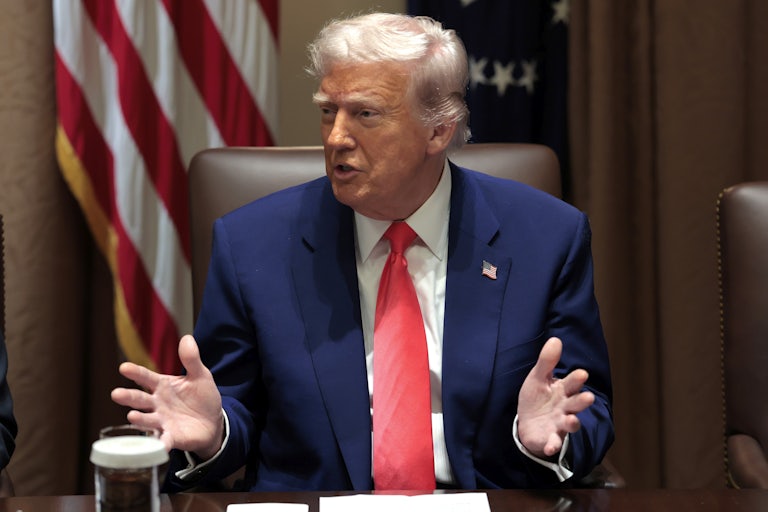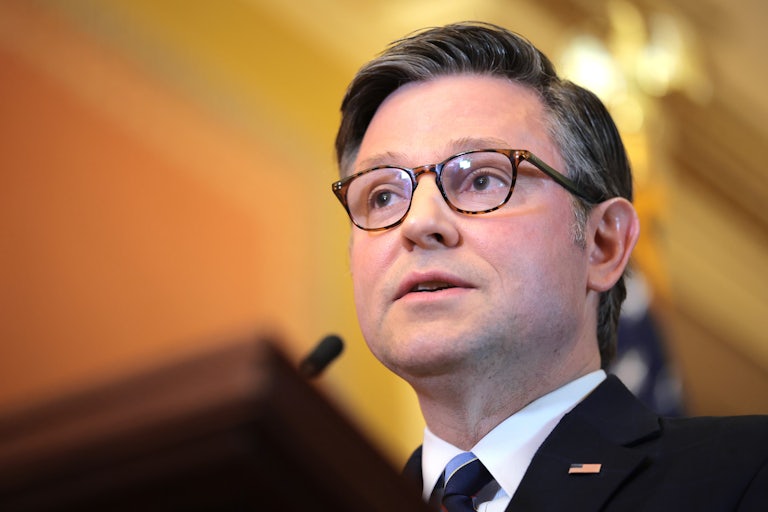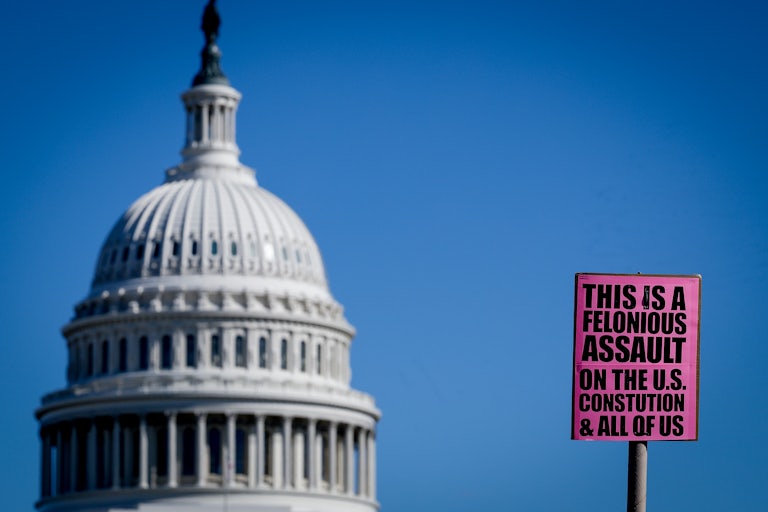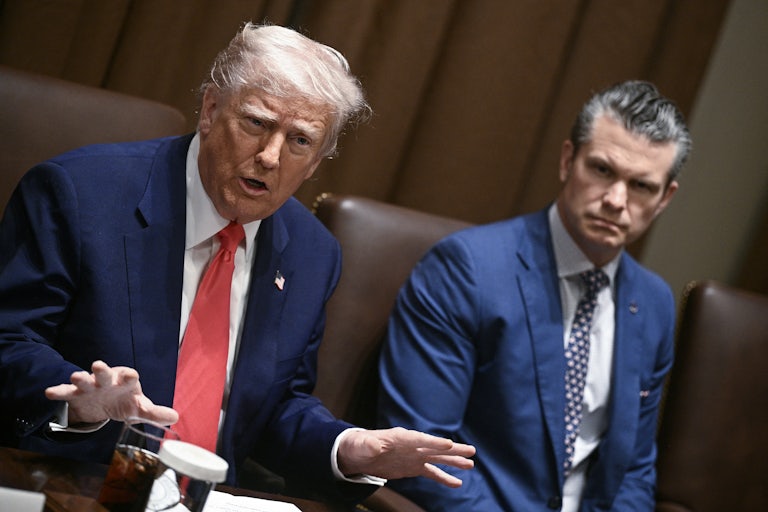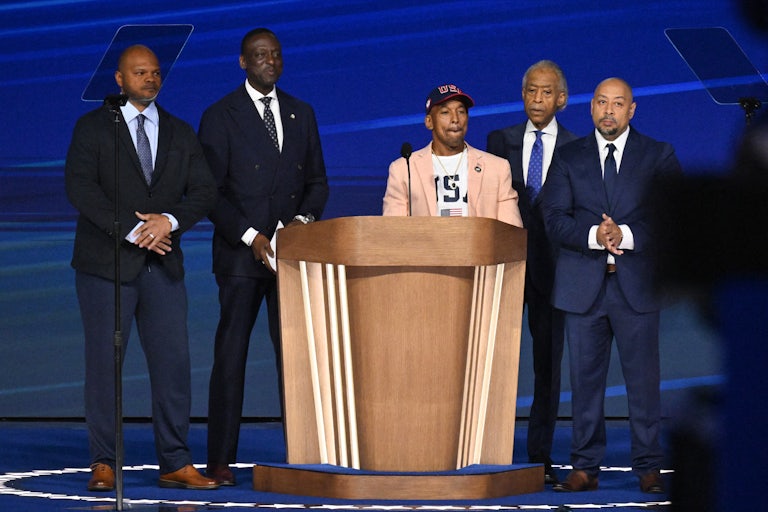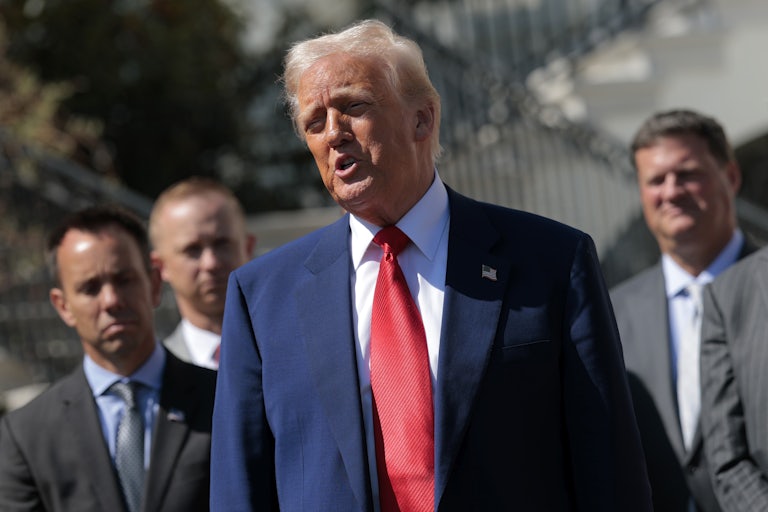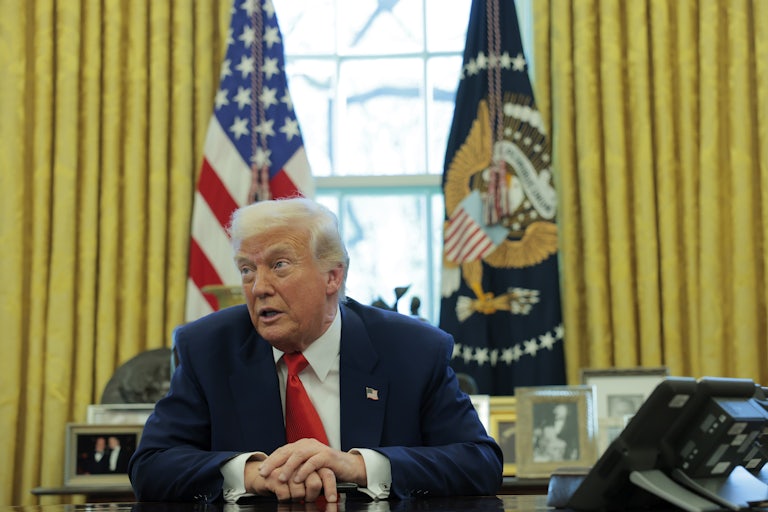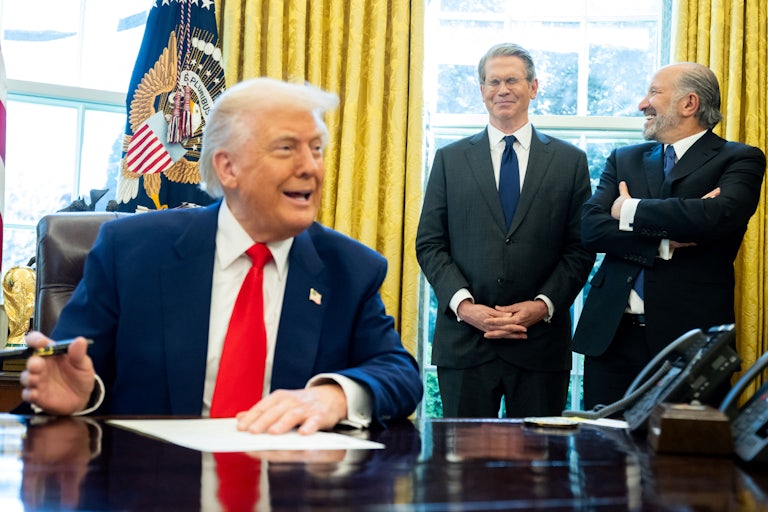Marco Rubio Finally Admits Why Mahmoud Khalil Is Really Being Targeted
The Trump administration has submitted its “evidence” against Mahmoud Khalil. And their argument against makes everyone a target.

The Trump administration’s basis for seeking to strip pro-Palestine activist Mahmoud Khalil of his green card amounts to this: He didn’t do anything illegal, but he holds beliefs that go against “core American interests.”
In a two-page memo from Secretary of State Marco Rubio obtained by the Associated Press, the government alleged that keeping Khalil in the country would undermine “U.S. policy to combat anti-Semitism around the world and in the United States, in addition to efforts to protect Jewish students from harassment and violence in the United States.”
Otherwise, the memo states, Khalil’s actions were “lawful.”
“Condoning anti-Semitic conduct and disruptive protests in the United States would severely undermine that significant foreign policy objective,” Rubio wrote.
A federal judge, Jamee Comans, had ordered the government to provide evidence by 5 p.m. Wednesday for its justification to deport Khalil, an Algerian citizen of Palestinian descent and Columbia University graduate who was a spokesperson for student activists at the university during protests last year against Israel’s brutal war on Gaza. A hearing is scheduled Friday on whether his detention can continue.
Khalil’s attorneys, Marc Van Der Hout and Johnny Sinodis, said in a joint statement that “immigration authorities have finally admitted that they have no case whatsoever against him.”
“There is not a single shred of proof that Mahmoud’s presence in America poses any threat,” the statement reads.
When asked if the government had any additional evidence against Khalil, a Department of Homeland Security spokesperson, Tricia McLaughlin, provided an emailed statement to the AP stating that “DHS did file evidence, but immigration court dockets are not available to the public.”
Khalil, who is married to a U.S. citizen due to give birth this month, has been held in a detention center in Louisiana after being arrested and detained by immigration agents last month at his university-owned residence. Khalil wrote in a letter last month from Louisiana that his detention was a “direct consequence of exercising my right to free speech as I advocated for a free Palestine and an end to the genocide in Gaza.”
Administration officials have alleged that Khalil’s actions support Hamas but failed to provide any evidence in any court filings. That may very well help Khalil, as Comens said Tuesday that if the government’s evidence doesn’t support his deportation, “then I am going to terminate the case on Friday.”
